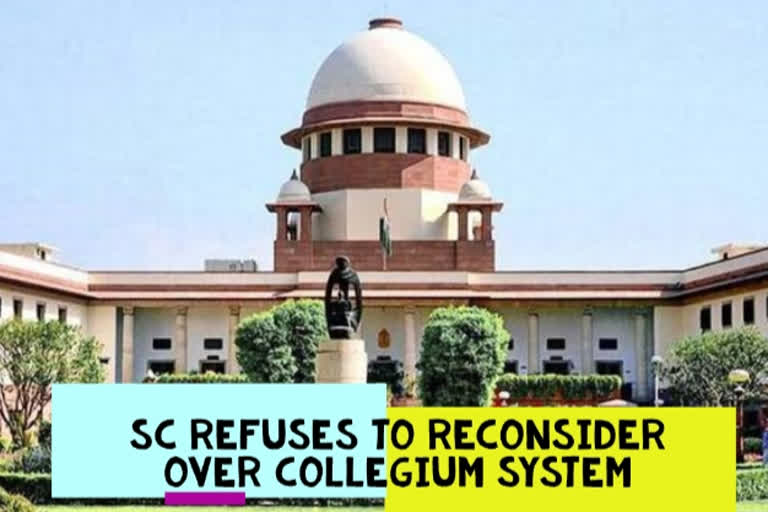New Delhi: The Supreme Court has refused to reconsider the 1993 judgment of the nine-judge Bench by which the collegium system of appointing judges was introduced.
A nine-judge bench, which included Chief Justice Ranjan Gogoi, Justice SA Bobde and Justice NV Ramana, dismissed the review petition filed by the National Lawyers Campaign for Judicial Reforms and Transparency (NLCJRT) saying it was without merit.
Read: SC agrees to hear plea seeking pension, appointment for policemen dying on duty
"There is an inordinate delay of 9,071 days in filing the instant petition, for which no satisfactory explanation has been offered," the court said in the October 17 order, which was released on Wednesday.
"The present petition is liable to be dismissed on the ground of delay itself, yet we have carefully gone through it and the papers connected therewith," it said.
The court also said, "We are satisfied that no case for review of the impugned judgment has been made out. The review petition is accordingly, dismissed, both on the ground of delay, as well as, merit."
Read: SC seeks report from Centre on plying of public transport vehicles in J-K during restrictions
Before 1993, judges were appointed by the President on the advice of the Union Cabinet. But after the 1993 judgment, also known as the Second Judges' Case, no Minister, or even the executive collectively could suggest names to the President.
The President has to decide on appointing judges from a list of names recommended by the Supreme Court collegium. The executive has the power to reject a recommended name.
The collegium system came under severe criticism and in 2015 Parliament passed a law to replace the collegium with National Judicial Appointments Commission (NJAC). This was struck down by the Supreme Court.
Read: SC refuses to pass order on K'taka Cong request about CM Yediyurappa's audio clip



